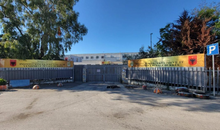
 Flash News
Flash News
Drenova prison police officer arrested for bringing drugs and illegal items into cell
Lavrov: NATO is risking self-destruction with new military budget
Kurti and Vučić "face off" tomorrow in Skopje
Construction worker dies after falling from scaffolding in Berat
The prosecution sends two Korça Municipality officials to trial
WB: Migration, economic inactivity and underutilization of talents are challenges for Albania

The Albanian economy faces real challenges closely related to human capital.
A periodic assessment by the World Bank, published under the heading "Poverty and Equality," focuses in a full paragraph on the potential that human capital has in the country and what can be done to positively impact the economy through its fair assessment.
The report implies better conditions to encourage more active participation of the most productive part of human capital, something that, in addition to developing the economy, also returns the investments in education made over the years.
“Albania possesses an untapped human capital potential that can drive growth and development. The country faces challenges such as migration, economic inactivity and under-utilization of existing talent pools. Improving the “utilization” of educated individuals, by improving labor market conditions to create better jobs, will not only bring immediate economic benefits through increased productivity, but will also maximize the return on the country’s investment in education.
“Promoting women’s economic participation is essential for Albania’s trajectory towards achieving high-income status. Closing the gender gap in employment could lead to a significant increase of 12 percent in GDP per capita in the long term. Unleashing women’s potential through education and labor market participation is thus essential for lifting the country out of poverty and towards prosperity,” the report says.
Poverty is expected to fall further
The World Bank report summarizes the progress of the poverty trajectory from year to year in the country. According to this report, between 2016 and 2019, strong economic growth led to a significant reduction in poverty levels.
“After an increase in 2020, poverty is estimated to have resumed its decline, driven by a strong post-pandemic recovery. Income-based poverty ($6.85 PPP per day) fell from 41.6 percent in 2016 to 32.2 percent in 2019, while GDP per capita grew by an average of 5 percent per year.
After an increase to 33.1 percent in 2020 due to the November 2019 earthquake and the COVID-19 pandemic, poverty is estimated to have fallen to 22.5 percent in 2023 thanks to strong GDP per capita growth, and is expected to fall further by 1.5 percentage points in 2024.
While inequality has declined, it remains high, with a Gini index of equivalized income reaching 36 points in 2018, the highest in the Western Balkans after Montenegro (36.9). In 2025, poverty is expected to fall by 1.1 percentage points to reach 19.8 percent,” the document states.
The same assesses that the Wellbeing Gap measure, which estimates the difference between people's income and a global standard of well-being of $25 per person per day, highlights the challenges of promoting inclusive growth.
“In 2018, Albania’s Welfare Gap was 3.9, indicating that incomes would need to increase on average almost 4 times to meet this standard of well-being. The employment rate was 68.6 percent on average in 2024, with male employment increasing by 2.0 percentage points, while female employment rates fell by 0.3 percentage points. Unemployment fell to 9.4 percent, but youth unemployment (15–29) remained high at 18.9 percent. The average wage increased by 9.8 percent in 2024, with growth across all economic sectors,” the report states./ Monitor
Latest news



Second hearing on the protected areas law, Zhupa: Unconstitutional and dangerous
2025-06-30 22:18:46



Israel-Iran conflict, Bushati: Albanians should be concerned
2025-06-30 21:32:42

Fuga: Journalism in Albania today in severe crisis
2025-06-30 21:07:11
"There is no room for panic"/ Moore: Serbia does not dare to attack Kosovo!
2025-06-30 20:49:53

Temperatures above 40 degrees, France closes nuclear plants and schools
2025-06-30 20:28:42
Lavrov: NATO is risking self-destruction with new military budget
2025-06-30 20:13:54
Turkey against the "Bektashi state" in Albania: Give up this idea!
2025-06-30 20:03:24

Accused of sexual abuse, producer Diddy awaits court decision
2025-06-30 19:40:44



Kurti and Vučić "face off" tomorrow in Skopje
2025-06-30 18:44:12
Tourism: new season, old problems
2025-06-30 18:27:23


Construction worker dies after falling from scaffolding in Berat
2025-06-30 17:51:44




Almost free housing: East Germany against depopulation
2025-06-30 16:43:06

Hamas says nearly 60 people killed in Gaza as Trump calls for ceasefire
2025-06-30 16:14:15
Drownings on beaches/ Expert Softa: Negligence and incompetence by institutions!
2025-06-30 16:00:03


European ports are overloaded due to Trump tariffs
2025-06-30 15:30:44
The prosecution sends two Korça Municipality officials to trial
2025-06-30 15:19:54

Lezha/ Police impose 3165 administrative measures, handcuff 19 drivers
2025-06-30 14:55:04
Young people leave Albania in search of a more sustainable future
2025-06-30 14:47:52
Record-breaking summer, health threats and preventive measures
2025-06-30 14:36:19


Constitution of the Parliament, Osmani invites political leaders to a meeting
2025-06-30 14:07:54

Heat wave 'invades' Europe, Spain records temperatures up to 46 degrees Celsius
2025-06-30 13:42:02
Accident in Vlora, car hits 2 tourists
2025-06-30 13:32:16

Kurti confirms participation in today's official dinner in Skopje
2025-06-30 13:03:27

Fight between 4 minors in Kosovo, one of them injured with a knife
2025-06-30 12:38:45

Report: Teenage girls the loneliest in the world
2025-06-30 12:20:40
Commissioner Kos and Balkan leaders meet in Skopje on Growth Plan
2025-06-30 12:07:59
Wanted by Italy, member of a criminal organization captured in Fier
2025-06-30 11:55:53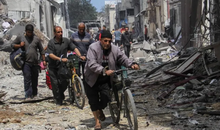
Hundreds of families displaced by wave of Israeli airstrikes in Gaza
2025-06-30 11:45:17

Zenel Beshi: The criminal who even 50 convictions won't move from Britain
2025-06-30 11:23:19
A new variant of Covid will circulate during the summer, here are the symptoms
2025-06-30 11:14:58

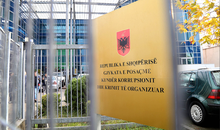
"Partizani" case, trial postponed to July 21 at the Special Court
2025-06-30 10:41:05
Uncontrolled desire to steal, what is kleptomania, why is it caused
2025-06-30 10:30:08
Requested change of security measure, hearing for Malltez postponed to July 7
2025-06-30 10:24:32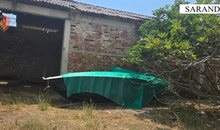


Output per working hour in Albania 35% lower than the regional average
2025-06-30 09:54:35
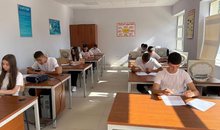
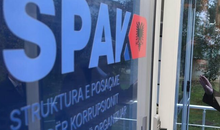
The trial for the "Partizani" file begins today
2025-06-30 09:27:57
22 fires in the last 24 hours in the country, 2 still active
2025-06-30 09:21:28
How is the media controlled? The 'Rama' case and government propaganda
2025-06-30 09:13:36
German top diplomat: Putin wants Ukraine to capitulate
2025-06-30 09:00:07
Foreign exchange, how much foreign currencies are sold and bought today
2025-06-30 08:44:38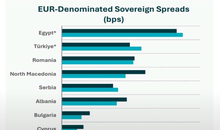
Chart/ Sovereign risk for Albania from international markets drops significantly
2025-06-30 08:26:38
Horoscope, what do the stars have in store for you?
2025-06-30 08:11:44
Clear weather and passing clouds, here is the forecast for this Monday
2025-06-30 07:59:32
Morning Post/ In 2 lines: What mattered yesterday in Albania
2025-06-30 07:47:37
Milan make official two departures in attack
2025-06-29 21:57:23
6 record tone
2025-06-29 21:30:46
4-year-old girl falls from balcony in Lezha, urgently taken to Trauma
2025-06-29 21:09:58


Assets worth 12 million euros seized from cocaine trafficking organization
2025-06-29 19:39:43
Fire in Durrës, Blushi: The state exists only on paper
2025-06-29 19:17:48

Fire endangers homes in Vlora, helicopter intervention begins
2025-06-29 18:27:51
France implements smoking ban on beaches and parks
2025-06-29 18:02:08
England U-21 beat Germany to become European champions
2025-06-29 17:42:49
Trump criticizes Israeli prosecutors over Netanyahu's corruption trial
2025-06-29 17:08:10
Street market in Durrës engulfed in flames
2025-06-29 16:52:57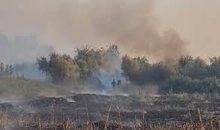

UN nuclear chief: Iran could resume uranium enrichment within months
2025-06-29 16:03:24
Albanian man dies after falling from cliff while climbing mountain in Italy
2025-06-29 15:52:01

Another accident with a single-track vehicle in Tirana, a car hits a 17-year-old
2025-06-29 15:07:15
While bathing in the sea, a vacationer in Durrës dies
2025-06-29 14:54:01
Sentenced to life imprisonment, cell phone found in Laert Haxhiu's cell
2025-06-29 14:26:40
77 people detained in protest, Vučić warns of new arrests
2025-06-29 14:07:46
